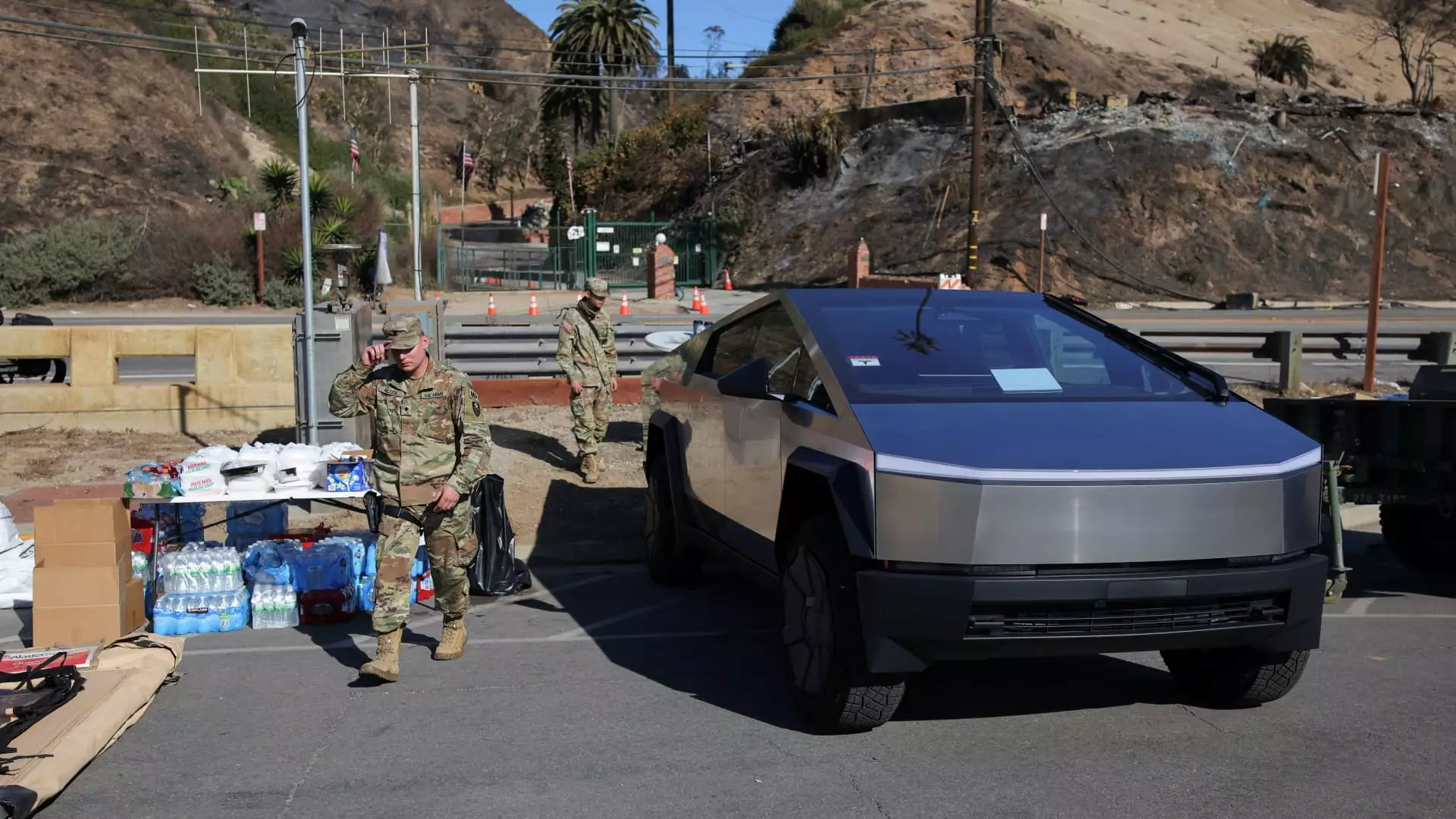Tesla’s Cybertruck, characterized by its distinct design and advanced features, has recently seen a shift in its sales strategy as the company begins offering discounts on new vehicles in inventory. With price reductions reaching as high as $1,600 for standard models and approximately $2,600 for demo versions, this move signals a strategic response to changing market dynamics. The Cybertruck’s production delays and the mismatch between initial price projections and current pricing have raised questions about its future as a leading product in Tesla’s lineup.
Reports highlight that production of the Cybertruck at Tesla’s Austin factory has slowed in recent weeks, which could indicate underlying issues within the supply chain or manufacturing processes. Since deliveries commenced in 2023, the unique unpainted steel design has garnered attention, yet this very feature may also complicate production efforts. Tesla’s attempts to streamline production while managing the delivery logistics of the Cybertruck seem to be challenging, especially as the company navigates multiple recalls. Recently, Tesla initiated its sixth recall within a year, aimed at addressing defective drive inverters—an issue that may tarnish the company’s hard-earned reputation for quality.
Despite becoming the fifth best-selling electric vehicle in the United States and outselling the Ford Lightning F-150 in the previous year, the Cybertruck’s high price point and recurring production troubles have hindered its sales growth. Originally projected by CEO Elon Musk to start around $40,000, the base price has surged closer to $80,000 in 2024. This substantial increase, combined with external competition intensifying in the EV market, presents significant barriers to broader consumer adoption. In an environment where global electric vehicle demand surged to record levels, Tesla’s sales figures illustrate a troubling trend; they declined year-over-year, contrasting with the general upsurge of 7.3% in EV sales for the broader market.
As the top-selling EVs in the U.S., the Tesla Model Y SUV and Model 3 sedan remain pivotal to the company’s success. However, it’s worth noting that even these icons experienced notable sales drops in the past year. While Cox Automotive estimated that Tesla sold around 38,965 Cybertrucks in 2024, the overall trajectory of sales raises concerns surrounding customer satisfaction and brand loyalty. Musk’s public apology to customers awaiting their Cybertruck deliveries, due to previous delays, reflects not just operational difficulties but also the critical importance that customer experience holds in maintaining brand strength.
In light of these developments, the future of the Cybertruck and Tesla’s overall sales strategy remain uncertain. The introduction of discounts may alleviate short-term inventory issues and drive sales, but without addressing production hurdles and quality concerns, there is a risk of long-term brand degradation. Tesla must now chart a path to regain market competitiveness while reassuring customers that their investments promise value and reliability amidst a rapidly evolving EV landscape.


Leave a Reply